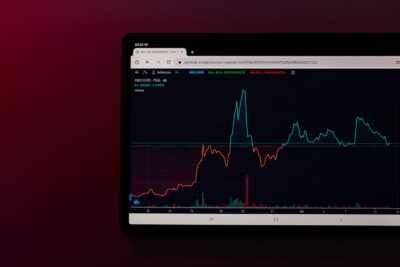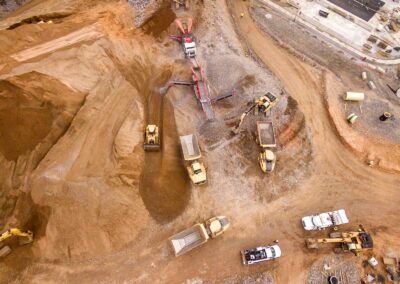5G technology, the fifth generation of mobile networks, is poised to revolutionize various sectors, and remote machinery operation is no exception. With its promise of lightning-fast speeds, ultra-low latency, and massive device connectivity, 5G is set to enhance the reliability and efficiency of remotely operated machines, opening up new possibilities for industries worldwide.
Enhanced Reliability and Reduced Latency
One of the critical advantages of 5G technology for remote machinery operation lies in its enhanced reliability and reduced latency. 5G networks offer significantly lower latency than previous generations, meaning that the delay between sending a command and the machine’s response is minimized. This near-instantaneous communication is crucial for applications where real-time control is essential, such as in the operation of heavy machinery in construction or mining sites.
Massive Device Connectivity
5G’s ability to support a massive number of connected devices simultaneously is another boon for remote machinery operation. This allows for the seamless integration of various sensors, cameras, and control systems into a single network, enabling operators to monitor and control multiple machines from a centralized location. This not only improves efficiency but also enhances safety by reducing the need for personnel to be physically present in hazardous environments.
Empowering Industrial Automation
The convergence of 5G technology with remote machinery operation is a catalyst for industrial automation. By enabling real-time monitoring, control, and data analysis, 5G empowers industries to automate various processes, leading to increased productivity, reduced costs, and improved safety. For instance, in manufacturing, 5G-enabled robots can be remotely operated with precision, streamlining production lines and minimizing errors.
Real-World Applications
The impact of 5G on remote machinery operation is already evident in various real-world applications. In the construction industry, 5G-powered drones are being used for site surveys, inspections, and even material delivery, reducing the need for manual labor and enhancing safety. In the mining sector, 5G-connected autonomous vehicles are being deployed for transporting materials, improving efficiency and minimizing risks to human operators.
The Future of Remote Work
The advancements in 5G technology and remote machinery operation have significant implications for the future of work. As more industries embrace remote operation, the demand for skilled operators who can manage and control machines from afar will increase. This opens up new career opportunities and necessitates the development of training programs to equip workers with the necessary skills.
5G-Powered Teleoperation in Harsh Environments
One of the most promising applications of 5G in remote machinery operation is in environments that are too dangerous or difficult for humans to access. For example, in the oil and gas industry, 5G-enabled robots can be used to inspect and repair pipelines in deep sea or remote locations, minimizing the risk to human workers. Similarly, in the nuclear industry, 5G-powered robots can be used for maintenance and decommissioning tasks in radioactive areas.
Improving Efficiency and Productivity in Agriculture
5G technology is also transforming the agricultural sector by enabling the remote operation of various machines, such as tractors, harvesters, and drones. This allows farmers to monitor crop health, optimize irrigation, and apply pesticides with precision, all from the comfort of their homes or offices. The use of 5G-powered agricultural robots is also being explored for tasks like weeding and harvesting, further reducing the reliance on manual labor and increasing productivity.
Addressing Challenges and Ensuring Security
While the benefits of 5G for remote machinery operation are undeniable, there are also some challenges that need to be addressed. One of the main concerns is cybersecurity, as the increased connectivity also opens up new avenues for cyberattacks. Robust security measures, such as encryption, authentication, and intrusion detection systems, are crucial to protect critical infrastructure and data. Additionally, regulatory frameworks and industry standards need to be established to ensure the safe and responsible use of 5G in remote machinery operation.
Conclusion
In conclusion, 5G technology is a game-changer for remote machinery operation. Its enhanced reliability, reduced latency, massive device connectivity, and ability to empower industrial automation are set to revolutionize various industries. As we move towards a more connected and automated future, 5G will play a pivotal role in enabling remote work and transforming the way we operate machines. The potential benefits of 5G for remote machinery operation are immense, and we are only just beginning to scratch the surface of what is possible.
#5G #remotemachinery #industrialautomation #connectivity #teleoperation























